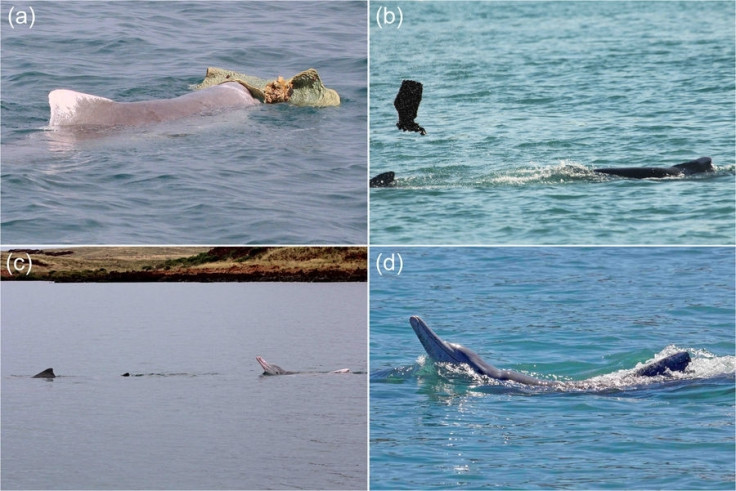Watch male dolphins woo females with 'gifts' and a little help from their wingmen
Scientists observed some male dolphins working together in pairs to attract partners.
Scientists have captured footage of humpback male dolphins off the coast of Western Australia presenting females with large marine sponges in an apparent effort to mate. They were even observed teaming up with 'wingmen' to attract partners.
This is the first time that this rare behaviour has been documented in the species and is also one of the few documented cases of non-human mammals using objects in a sexual display.
The dolphins were also observed making physical gestures and 'singing' to grab the attention of females. Researchers think that these behaviours could be a display of the male's strength and quality as a partner.
The scientists from the University of Western Australia (UWA), University of Zurich and Murdoch University have been studying dolphins in the region for around a decade.
They first spotted the behaviour when a male dived down to the seafloor, returning with a large marine sponge balanced on its beak which it then pushed towards the female as a 'gift'.
While dolphins are known to be extremely intelligent animals, Simon Allen, lead author of the study from UWA's school of Biological Sciences, said the observations suggest an unprecedented level of social complexity in humpback dolphins.

"We were at first perplexed to witness these intriguing behavioural displays by male humpback dolphins, but as we undertook successive field trips over the years, the evidence mounted," Allen said.
"Here we have some of the most socially complex animals on the planet using sponges, not as a foraging tool, but as a gift, a display of his quality, or perhaps even as a threat in the behavioural contexts of socialising and mating."
Stephanie King, co-author of the study also notes how some of the large male dolphins appeared to work together in pairs to attract sexual partners, forming 'wingman' relationships.
"The formation of alliances between adult males for the purposes of coercing females is uncommon, since mating success cannot be shared," King said. "This is a new finding for this species, and presents an exciting avenue for future research."
The study describing the rare behaviour is published in the journal Scientific Reports.





















